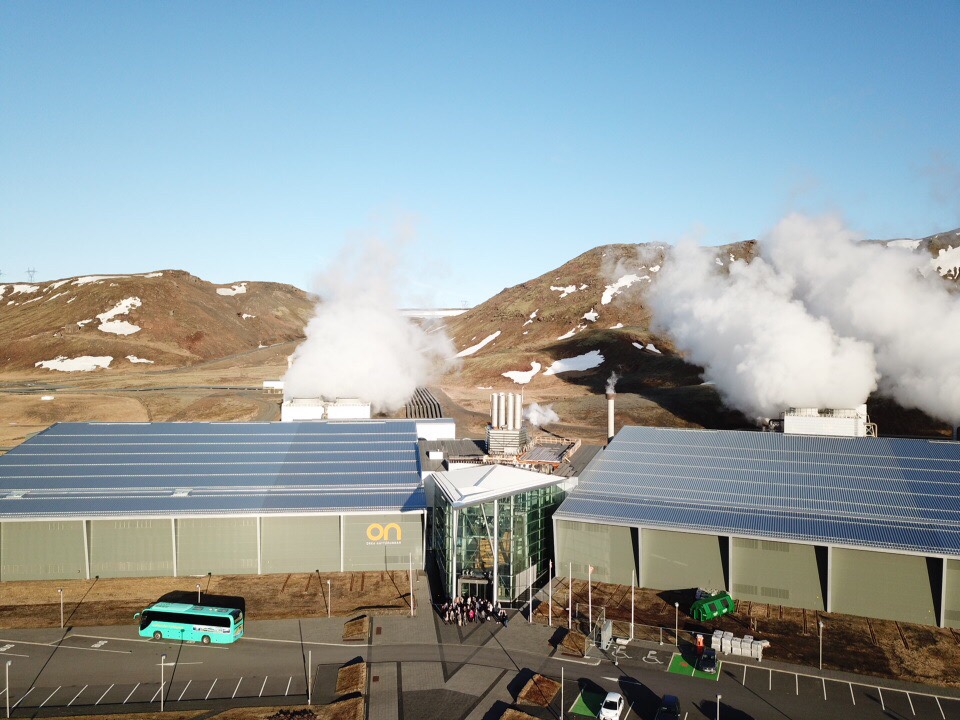50% heating production capacity increase at Hellisheidi geothermal plant, Iceland

Construction of the 50% expansion of the heating plant of the Hellisheidi geothermal plant near Reykjavik, Iceland has been completed, securing hot water supply in time for the heating season in Reykjavik and surroundings.
In a news release today, Reykjavik Energy and ON Power announce that construction on the expansion of the heating plant at the Hellisheidi geothermal plant by ON Power in Iceland has been increased by 50%. The heating plant produces hot water for residents and companies in the capital area of Reykjavik. As a result, the heating generation capacity increased from 600 l/s to 925 l/s, or by more than 50%. The total cost of the expansion amounts to ISK 1,250 million (at current exchange rate this is around USD 9 million).
This expansion was originally planned for 2023, but was accelerated due to a considerable increase in the use of hot water in the capital area beyond long-term forecasts. The main reasons for the increase are the increase in population and tourists, the large construction of housing, incl. hotel buildings that use a lot of hot water and not least, more use per capita that was not foreseen when forecasts were made. This development has put a strain on Veitur’s hot water wells in Reykjavík and Mosfellsbær, especially when the weather is very cold for a long time.
Relief on boreholes
The hot water that comes to users from ON Power’s power plants in Hellisheidi and Nesjavellir is heated groundwater. The expansion of the heat plant therefore involved drilling three cold water wells in Engidal, in addition to adding one heat exchanger pair and a main pump.
With the increased production capacity of power plants on hot water, it is possible to take neighborhoods in the city from borehole water, which is a limited resource, and put water from the power plants. Utilities have recently been under construction with the aim of moving Árbær, Ártúnsholt and later Sundahverfi from borehole water to water from the power plants permanently.
“Older districts of Reykjavík get water from Veitur’s boreholes. The transfer of Árbær, Ártúnsholt and later Sundahverfi to water from the power plants gives us space to meet the increased need in the older districts where there has been a lot of development in the form of condensation. The expansion of the heating plant is therefore a puzzle in the big project to provide the capital area with hot water for heating, bathing and swimming and industry for the long term and at the same time use the valuable resource that is our hot water responsibly, “says Arna Pálsdóttir, project manager for innovation projects at Reykjavik Energy, the parent company of ON and Veitur.